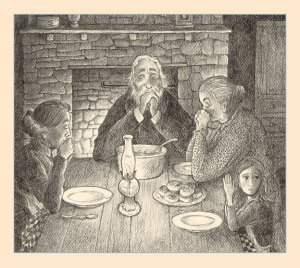The whirl of giving
A green coat guarded his stooping trunk from the cold
and provided pockets for his hands to balance his lopsided gait.
For on the path he began to stray
Into the grass where the mallards fed.
Without a stir in his brow, his hands fumbled inside
and brought out a plastic sack with pellets for the birds.
Slowly, calmly, and as still as the air before nature knows assault,
he surveyed his recipients flapping their wings and nuzzling beaks into the grass.
Gathering handfulls, he followed the time of his age
spreading the gifts abundantly.
The sight of food inspired shrill quackings from the ducks,
the hurried noise of the hungry,
and as local animals heard their cries,
Go!
they spurred onto the scene,
mallards flying from the east,
snow doves circling above, inspecting the place for landing,
and geese barreling through with their largesse laying claim to space.
The splashes, the flaps, the gurgling competition
neither hurried nor aroused the feeder.
Emptying his feed in rhythmic pace,
he dropped the last contents out to the mallard below,
who failed to catch his previous wide throws.
And with the chorus wound up in song,
the man with nothing left
quietly departed the scene.
Not disturbing that which he had just created,
the life of giving and the contentedness of giving all.




